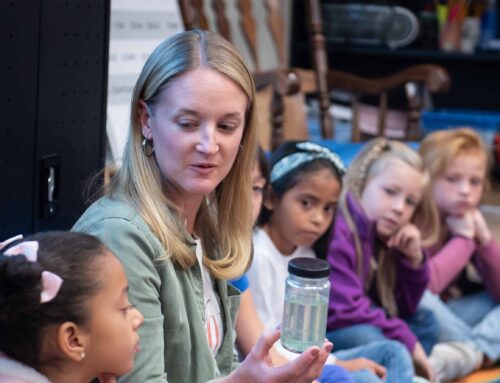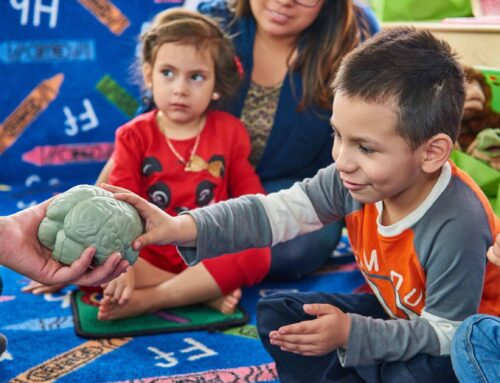Self-regulation and co-regulation are at the core of everything that FocuseKids does. While these terms may seem a bit clinical, they simply speak to the idea of how we calm ourselves down (self-regulation) and how we help calm others down (co-regulation). Let’s dive a little deeper into each of these ideas.
What is Self-Regulation?
Self-regulation is an essential developmental milestone. It includes a set of skills that allows a child to manage his emotions, control his actions, and maintain focus and attention on a task.
Children develop at different rates in all of the developmental stages and this is true for self-regulation as well. It is a complex process that is influenced by the child’s temperament, environment, and experiences. Optimally, they gain some level of mastery over these skills during the preschool years.
Three Types of Self-Regulation:
- Emotional self-regulation is involved in how we feel emotions, how we pay attention to emotions, how we think about these feelings and how we behave. Young children gradually learn how to manage their feelings. This leads to effectively interacting with peers and adults when they are upset, frustrated, or otherwise over-stimulated.
- Behavioral self-regulation includes the ability to inhibit one’s actions. Examples include remembering and following rules, not hitting or biting, and sharing in play.
- Cognitive self-regulation is the most complex and last to develop. It begins to appear in four-year-olds as they develop their ability to plan (e.g., what they are going to do) and utilize proper responses (e.g., listening when a story is read).
A three-year-old shares how she self-regulates:
(Thanks for the video Momentous Institute!)
It is important to remember that individual differences very much impact the ability and speed with which a child learns to self-regulate.
Why is self-regulation important?
These skills are integral to how a child comes to feel about herself and her relationships with others, her ability to cope in the face of frustration, disappointment, stress and uncertainty, and her mental health. In addition, many of the behaviors and attributes associated with successful school adjustment are related to self-regulation skills. Popular psychologist Daniel Goleman is a great exponent of research showing that self-regulation capabilities are the biggest single determinant of life outcomes. These skills are integral in how a child comes to feel about herself and her relationships with others, her ability to cope in the face of frustration, disappointment, stress and uncertainty, and her mental health.
How do kids learn self-regulation?
By practicing certain kinds of exercises daily children can learn these important skills. Traditionally, games like Red Light, Green Light, or Simon Says have been used to help facilitate this process. We have learned that introducing both calming and focusing exercises at an early age is helpful. It takes daily practice, gentle reminding, and modeling to support children in this learning.
What is co-regulation?
Because their brains are immature and are lacking the experience and practice for developing self-regulation, children rely on parents, teachers, and caregivers to help in a moment of upset by regulating themselves first, and modeling healthy coping skills. Children need help making sense of how they feel, but are not able to do this while they are upset. Hence, regulation, or calming, must come first. An adult who can respond to an upset child in a regulated state is “sharing” that state with the child. This is the first step in defusing the situation, and restoring calm. Making sense of it comes after this.
About the Author
Amanda Petersen
Amanda is the Executive Director of FocusedKids. As a licensed professional counselor, parent, and former teacher, she has a wealth of experience and knowledge that she is able to rely on in guiding the organization.


